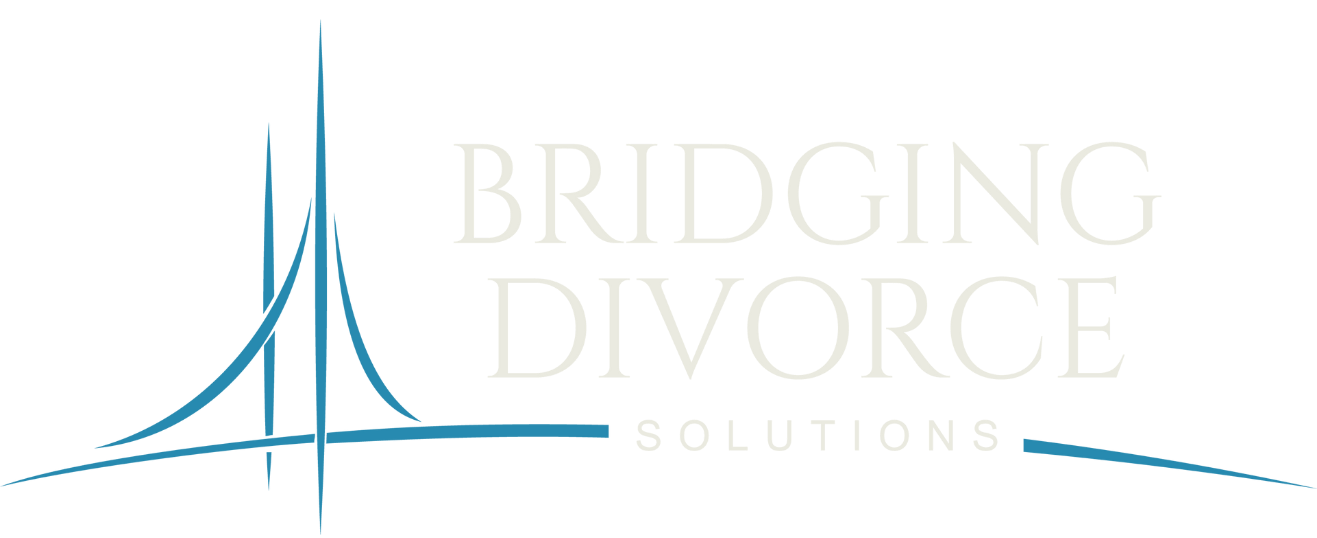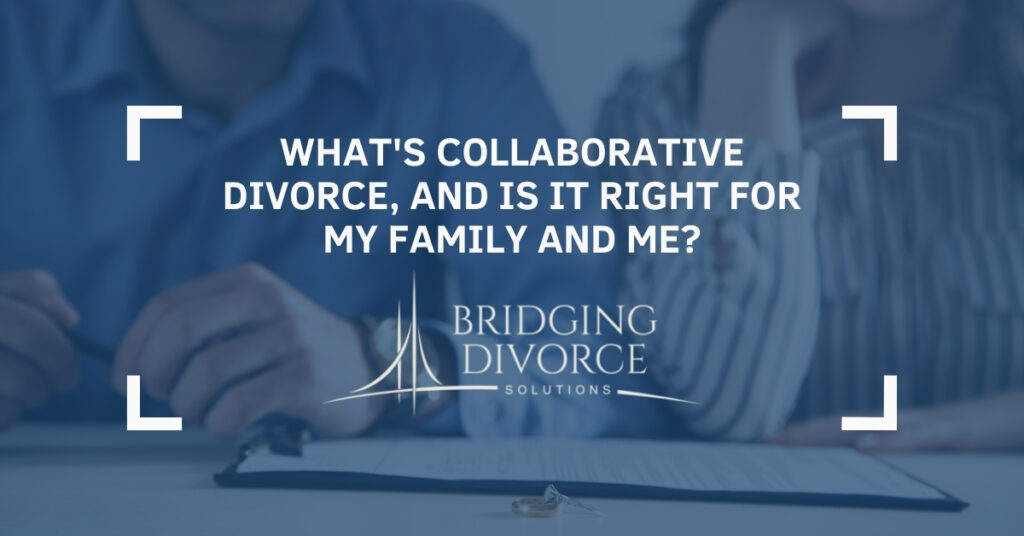Part One of Two – The Collaborative Team and Who It Works For
The Collaborative Divorce Process is a form of alternative dispute resolution that goes back to the 1990s. It started in Minneapolis. A family law attorney practicing in the court system for years dreamed of a better, less expensive, less aggressive way of achieving an out-of-court settlement. That lawyer was Stuart Webb, and the technique became known as the Collaborative Divorce Process. In developing this method, Mr. Webb recognized that while a divorce is a legal process, most of the decisions are not legal. The process of divorce is generally making family and financial decisions in a legal construct.
Here’s a rundown of the professionals involved and who most suits the approach.
When you choose the Collaborative Divorce Process, you and your spouse agree that you each have an attorney representing you trained in the Collaborative Process. That part is crucial. Your discussions will take place in real-time, all together.
The process takes the decisions out of the courtroom and away from the legal system. When you use Collaborative Divorce, your family designs a mission-based agreement that is best for all of you going through the divorce and life afterward. Cooperating to reach your decisions is wildly different than the process you encounter when going through the legal system. When using the courts, the decisions for your family are made by whatever judge hears your case. This judge (or even jury) evaluates whatever the information to them and decides what happens to you, your family, and your money. The judge doesn’t know your history or situation. Prior case decisions for someone else’s family as they went through the legal process guide the judge’s ruling.
Using the Collaborative Divorce Process, you have a team of professionals.
Your attorney is your advocate, advising you on your rights and options and what might happen if you face these decisions in litigation.
For example, one party may expect spousal support (also called maintenance or alimony) at really high dollar amounts for a lengthy period. If that’s highly unlikely under the laws in your state, your attorney may advise you of how doubtful what you want is and guide you down a more realistic path.
Conversely, suppose part of your agreement is not legal where you live or may cause problems down the road. In that case, your attorney can point out the issues and help you develop alternative ideas to meet your goals.
Other specialists are coaches and financial advisors who specialize in divorce. These professionals may be at every meeting or called upon when discussions address their area of expertise. They might be neutral parties who are there to give expert information for decision-making or additional advocates.
One professional frequently used in a collaborative divorce process is a divorce coach. The professional designation for this is Certified Divorce Coach (CDC®). They are often a mental health professional but, depending on your state’s rules, do not have to be. I practice as a CDC® and a Certified Divorce Financial Analyst®. The divorce coach helps communicate among all the team members and ensures that information and schedules are shared, the team meets deadlines, and the process stays on track. The CDC® may also work individually with the parties to determine their goals for life after their divorce process or brainstorm alternatives if the divorcing couple becomes stuck.
A CDFA® (Certified Divorce Financial Analyst) helps the divorcing couple figure out their financial options as a neutral party. They can also help explain some of the financial possibilities and allow the divorcing couple to look down the road to see the impact of some money decisions they make.
Some are concerned that the collaborative process is more expensive because of the number of professionals involved. Because each professional works in their area of expertise, there is less time wasted or waiting for answers. Think of it this way, instead of talks coming to a screeching halt because you don’t have the answers you want to a financial question about the tax issues in splitting assets; you have the financial expert right there to answer your questions and keep moving forward.
Usually, different professionals have different billing rates. Typically attorneys are the highest, Certified Divorce Financial Analyst® in a mid-range, and Certified Divorce Coaches® bill at a lower hourly rate. Suppose you have a Coach handling the administrative and communication parts of the process instead of an attorney. In that case, your costs start to go down. The cumulative cost can be significantly less than a court-based process. Having the team meet together eliminates the back-and-forth, and potential misinterpretation of information or opinions as spouses discuss their negotiations and solutions directly instead of through other people. Having experts “stay in their lane” to help you with specific parts of your settlement reduces the chance of mistakes.
How do you know if the Collaborative Divorce Process is good for you?
Collaborative tends to be best for couples with a long-term marriage and a more complicated or involved financial picture. It can also be good when there’s a power imbalance. One of the spouses will benefit from having an advocate there during the discussions if they aren’t in the habit of speaking up or having boundaries. The process works for families who want to control their divorce process and decisions. The process is confidential (staying out of court). Managing the schedule instead of being slotted into an overburdened system lets divorcing couples proceed at their own pace.
Next week, Part Two – The Collaborative Process – What to Expect and How to Make it Work for You.
Take Control of Your Future
When you consider divorce, or if you know someone who is contemplating divorce, one of the biggest realities for those in the divorce process is the financial settlement and financial analysis post-divorce. Get the assistance of Brenda Bridges, a Mediator, Certified Divorce Financial Analyst® (CDFA®), RICP® Retirement Income Certified Professional, and Certified Divorce Coach.
Brenda provides step-by-step guidance on matters related to divorce. With a wide range of experience and expertise related to divorce issues, Brenda will simplify the process and provide much-needed clarity in areas such as long-term tax consequences, asset, and debt analysis, dividing pension plans, continued health care coverage, stock option elections, protecting support with life insurance, and much more.
Schedule Your FREE Discovery Call Today!
Divorce coaching and educational services provided through Bridging Divorce Solutions, LLC. Bridging Divorce Solutions, LLC is not affiliated with Cambridge. Examples are hypothetical and for illustrative purposes only.





